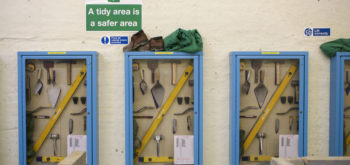In the Law Commission consultation paper on criminal appeals, the Commission expresses the opinion that the “substantial injustice” test used by the Court of Appeal (Criminal Division) (CACD) to uphold convictions where the law has changed “that the development of the ‘test’ … and its later development may have become an obstacle to the correction of miscarriages of justice”.
It notes that a ‘practice’ has become a ‘test’ which has expanded and been applied inconsistently (in a “forward looking basis” in trafficking and refugee cases where an applicant can show that a conviction has consequences and “backwards looking” in “joint enterprise” appeals where, in cases involving alleged accessories, the CACD asks itself whether the change in law would have made a difference to the outcome at trial, and then whether there would be any substantial injustice in allowing the conviction to stand.
Joint enterprise cases
I have argued (Book Chapter 11 in the link) more than once (R v Ennis) that the current application of “substantial injustice” is an opinion basis which restores the abolished Proviso (which allowed the CACD to uphold a conviction where there had been an error at trial but the CACD believed the conviction should stand). The proviso was abolished on evidence of judicial bias in the 90s. Notably, racism in “joint enterprise” cases has been revealed by the CPS – something well known to many of the families campaigning for release of their loved ones. It was also in the 90s that the House of Lords deliberately created an error of law in “joint enterprise” which they said was to prioritise “practical considerations” over “logic”, whatever that means!
This deliberate “error” was corrected by the UK Supreme Court in the case of Jogee in 2016 where their Lordships conceded the law had taken a “wrong turn”. In Jogee, it was identified that people had been wrongly convicted of serious crimes where the jury were only directed, in cases where complicity in a crime was alleged, to find that the accused person “foresaw the possibility” of a crime, instead of having to be being sure that the accused person intended to participate in that crime. The consequence was that for 30 years, in murder trials, those who had no intention to join in with a killing were wrongly convicted. Jogee arguably “corrected” that law, but the courts have not only wrongly treated those as “change of law” cases but, as the Law Commission has noted, the CACD has found a way, with no real foundation in law, not to release those affected by inconsistent application of that ‘substantial injustice’ ‘test’. Save for one prisoner, whom it is rumoured managed to persuade a judge to visit him in prison, those affected are still incarcerated – convicted of murder when they did not kill anyone and had no intention to join in.
It is a substantial miscarriage of justice.
A Misplaced focus
Sadly, on 7 July 2025, in a published response to the Law Commission Consultation Paper which does not appear to have been given to members (I note I am a member) in advance, the Criminal Bar Association of England and Wales (CBA) defends the continued application of a high-threshold “substantial injustice” test in post-conviction appeals following Jogee. While the CBA acknowledges criticisms of the test’s application, its broader position is clear: reform must not create a deluge of appeals that would strain court resources. In advancing this view, the CBA risks placing institutional convenience above the fundamental pursuit of justice.
The CBA’s main concern is that lowering or removing the “substantial injustice” test would encourage a wave of historic appeals, potentially overwhelming the CACD and the Crown Court with retrials. The fear is administrative: that correcting an historic injustice would place untenable demands on already overstretched resources.
But this perspective reveals a troubling hierarchy of priorities. In choosing to foreground workload concerns over correcting wrongful convictions, the CBA risks legitimising a system that allows known injustices to persist unremedied. Justice should never be rationed based on institutional capacity. If the legal system has wrongly convicted someone, particularly under a discredited interpretation of the law, then the ethical response is not to filter them out, but to bring them in. The mere possibility of more work should not serve as justification for maintaining a legal barrier that keeps people in prison who would not be convicted today.
In apparently conceding that some individuals, such as those convicted of murder on the wrong law will have suffered a substantial injustice, but still defending a system that denies them redress, the CBA exposes moral limits of the workload-first approach which privileges legal finality and procedural neatness over moral and legal correctness. It is a hollow view of justice. Especially where, if leave to appeal is refused, the Supreme Court has no function and will not exercise supervisory jurisdiction over the CACD. It means that those past alleged accessories, without intention, convicted on possibilities, labelled murderers and subject to life sentences with minimum terms measured in decades are stuck in a vortex of ever changing ‘practice’ and ‘tests’ which fail to recognise the lack of legitimacy in “joint enterprise” and endlessly brings the criminal justice system into disrepute.
For those convicted post – Jogee the situation is no less bearable because, in a series of cases (Rowe, Fiaz and Pommel), the CACD has held, contrary to Jogee, that no contribution to a crime need be proved. So it is that under the previous “error” of law Laura Mitchell was convicted of murder when she was looking for her shoes in car park; and the present “error” of law Faisal Fiaz was convicted of murder when he was in the back of a car, nowhere near the scene. No wonder the Law Commission has suggested substantial changes to the appeal system in England and Wales.
Whose System Is It?
The criminal justice system does not exist to preserve court diaries or reduce barristers’ workloads. It exists to uphold the rule of law, ensure fair trials, and correct injustices where they arise. If that means more work for lawyers and judges, then so be it.
In opposing meaningful reform of the substantial injustice test, the CBA positions itself as a gatekeeper, prioritising finality of cases over justice, order over rightness. But no amount of institutional efficiency can justify allowing people to live with the stain of a conviction that the law now recognises as wrong. The Law Commission has rightly recognised that justice is not synonymous with inconvenience so now we must hope that the Commission sticks to its excellent legal research.







